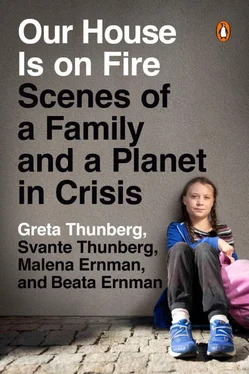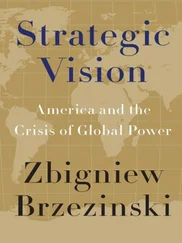Greta Thunberg - Our House Is on Fire - Scenes of a Family and a Planet in Crisis
Здесь есть возможность читать онлайн «Greta Thunberg - Our House Is on Fire - Scenes of a Family and a Planet in Crisis» весь текст электронной книги совершенно бесплатно (целиком полную версию без сокращений). В некоторых случаях можно слушать аудио, скачать через торрент в формате fb2 и присутствует краткое содержание. Город: New York, Год выпуска: 2020, ISBN: 2020, Издательство: Penguin Books, Жанр: Биографии и Мемуары, Публицистика, на английском языке. Описание произведения, (предисловие) а так же отзывы посетителей доступны на портале библиотеки ЛибКат.
- Название:Our House Is on Fire: Scenes of a Family and a Planet in Crisis
- Автор:
- Издательство:Penguin Books
- Жанр:
- Год:2020
- Город:New York
- ISBN:978-0-14313-357-5
- Рейтинг книги:4 / 5. Голосов: 1
-
Избранное:Добавить в избранное
- Отзывы:
-
Ваша оценка:
- 80
- 1
- 2
- 3
- 4
- 5
Our House Is on Fire: Scenes of a Family and a Planet in Crisis: краткое содержание, описание и аннотация
Предлагаем к чтению аннотацию, описание, краткое содержание или предисловие (зависит от того, что написал сам автор книги «Our House Is on Fire: Scenes of a Family and a Planet in Crisis»). Если вы не нашли необходимую информацию о книге — напишите в комментариях, мы постараемся отыскать её.
Our House Is on Fire: Scenes of a Family and a Planet in Crisis — читать онлайн бесплатно полную книгу (весь текст) целиком
Ниже представлен текст книги, разбитый по страницам. Система сохранения места последней прочитанной страницы, позволяет с удобством читать онлайн бесплатно книгу «Our House Is on Fire: Scenes of a Family and a Planet in Crisis», без необходимости каждый раз заново искать на чём Вы остановились. Поставьте закладку, и сможете в любой момент перейти на страницу, на которой закончили чтение.
Интервал:
Закладка:
And sure, we all fight for the wrong things. Or rather: we fight for the right things but as long as our lifestyle is at odds with the most important issue of all, there is a great risk that in the end our struggle will have been in vain. For nothing.
Surely, not everyone needs to become a climate activist. But at a bare minimum we could all stop actively destroying our environment and planet, and stop showing off that self-same climate destruction as trophies on social media.
I am a big part of the problem myself.
Not three years have passed since I was posting sun-drenched selfies from Japan. One ‘Good morning from Tokyo’ and tens of thousands of ‘likes’ rolled in to my brand-new iPhone.
On the flight home I spent a whole day staring out over Siberia and the Arctic Ocean while the jet engines sang the monotonous song that plays a unique minor role in the liberation of the tundra’s greenhouse gases from their 100,000-year permafrost sleep. The awakening of the mighty methane dragon.
Something started to ache inside of me. Something I’d previously called travel anxiety or fear of flying but which was now taking on another, clearer form. Something was wrong.
But I had performed for 8,000 people and the concerts had been recorded for Japanese TV, so my trip had served a purpose, I convinced myself.
As if our biosphere and ecosystems care about Japanese TV.
Denial is a mighty force.
SCENE 28.
Gluttony
From a human point of view, a balanced, functioning atmosphere is a finite asset; a limited natural resource that belongs equally to all living things and beings. At the current emissions rate this natural resource will be used up in eight to sixteen years time, depending on if you aim for the 1.5°C or the ‘well below 2 degree target’ set in the Paris Agreement. And how many per cent chances do you wish to give us?
But it is much worse than that.
To maintain a safe and sustainable climate the concentration of CO 2should not exceed 350 parts per million, according to leading researchers. At the present time we have already passed 415 ppm and within ten to twelve years we’re expected to reach 440 ppm.
And so on.
The emissions for a person who flies economy class, Stockholm–Tokyo return, are 5.14 tonnes of CO 2, according to Arlanda Airport’s own carbon-offsetting programme.
The combined flight time of about twenty-five hours corresponds – roughly calculated – to an individual’s consumption of 200 kg of beef.
Our new habits have undeniably shone a new light on the gluttony of both the ancient Romans and eighteenth-century French aristocrats.
The average emissions for an inhabitant of India, according to the World Bank, are 1.7 tonnes per year. In Bangladesh the figure is 0.5 tonnes.
And no, soon we will no longer be able to talk about solidarity and equality without weighing up our own ecological footprint. To stand up for justice is a mandate that is in the process of slipping out of our hands.
SCENE 29.
Symbiosis
I should have written a cookbook instead. A book about cookies and my favourite composers. Or a real autobiography. A singer’s memoirs.
Nothing about burn-out, medication or diagnoses.
An agreeable book. Maybe about yoga. In which, naturally, I would tackle some agreeable environmental issues as well: plastic bags, food waste or something else that doesn’t come across as too uncomfortable or awkward for anyone.
A positive book that in no way touches on things like eating disorders, environmental disaster or depression. Or how on certain days you can’t get out of bed because you can’t, don’t want to or don’t have the energy. How on certain days you have thoughts you shouldn’t be having.
I should not have written a book about how I felt.
I should not have written a book about how my family has felt for long periods during the past few years.
But I had to. We had to. Because we felt like shit. I felt like shit. Svante felt like shit. The children felt like shit. The planet felt like shit. Even the dog felt like shit.
And we had to write about it.
Together.
Because once we realized why we were feeling the way we did, we started to feel better.
We had to write about this because we are among those who got help. We got lucky and sometimes I think that we are going to come out of this strengthened. Strengthened and whole. I believe that fairly often.
And it’s time we all started talking about how we’re really doing. We have to start telling it like it is.
We live in a time of historic abundance. The world’s combined resources have never been greater. Just like the chasms dividing rich and poor. Some have so insanely much more than they need. Others have nothing.
At the same time the world around us is only faring worse. The ice is melting. Insects are dying. The forests are disappearing and the oceans and other ecosystems are struggling more and more each day.
Like so many people around us.
People who have fallen apart like we fell apart, people who are still tattered and torn. Our friends.
The ones who couldn’t keep up the pace.
Those who didn’t fit the mould.
Those who didn’t have the good fortune to meet the right doctor.
Those who didn’t show up in the statistics.
All those countless people who truly live in symbiosis with the planet they inhabit. Not the symbiosis we usually talk about, the one we associate with a down-to-earth life in harmony with nature.
This is about a new unanimity: a new chord. This is about burned-out people on a burned-out planet.
And such stories don’t belong in cookbooks.
SCENE 30.
Astrophysics
It takes 23 hours, 56 minutes and 4.091 seconds for the earth to revolve on its axis and complete a full day. Sometimes it feels like it’s going a little bit faster, although the velocity is always exactly the same, down to the millisecond. On the other hand there are things that spin around us and definitely do increase in velocity – our lives, for example.
When I was little they used to say that a computer could never replace a human.
‘Just look at chess! A computer can’t beat a person,’ people said.
Then, in 1990, a man by the name of Ray Kurzweil maintained that because the world’s computing capacity was doubling every year, a computer would beat the world’s best chess player before 1998; this was a matter of pure logic.
And sure enough, in New York on 3 May 1997, in one of the most famous chess games in history, the reigning world champion, Garry Kasparov, was defeated by IBM’s software program Deep Blue.
So that was that.
Today Ray Kurzweil is Director of Engineering at Google and makes assertions such as a child equipped with a smartphone in the African countryside has access to more information than the American president had only twenty years ago. Computers being in possession of human-level intelligence is, according to Kurzweil, also only a matter of time; a mathematical truism that will materialize no later than 2029.
This says something about the speed at which our society is changing right now.
But it doesn’t say everything.
We experience more, we feel more, we have more and stronger opinions. On social media we debate social issues at a speed and to an extent that makes the 1990s seem like the Middle Ages.
Nothing gets to just be, everything has to be taken to extremes. Everything has to be brought to a head.
We produce more. We consume more. In fact, whatever it is we do, we do it more. Much more.
Читать дальшеИнтервал:
Закладка:
Похожие книги на «Our House Is on Fire: Scenes of a Family and a Planet in Crisis»
Представляем Вашему вниманию похожие книги на «Our House Is on Fire: Scenes of a Family and a Planet in Crisis» списком для выбора. Мы отобрали схожую по названию и смыслу литературу в надежде предоставить читателям больше вариантов отыскать новые, интересные, ещё непрочитанные произведения.
Обсуждение, отзывы о книге «Our House Is on Fire: Scenes of a Family and a Planet in Crisis» и просто собственные мнения читателей. Оставьте ваши комментарии, напишите, что Вы думаете о произведении, его смысле или главных героях. Укажите что конкретно понравилось, а что нет, и почему Вы так считаете.






![Корнелл Вулрич - Murder at Mother’s Knee [= Something That Happened in Our House]](/books/398097/kornell-vulrich-murder-at-mother-s-knee-somethin-thumb.webp)





